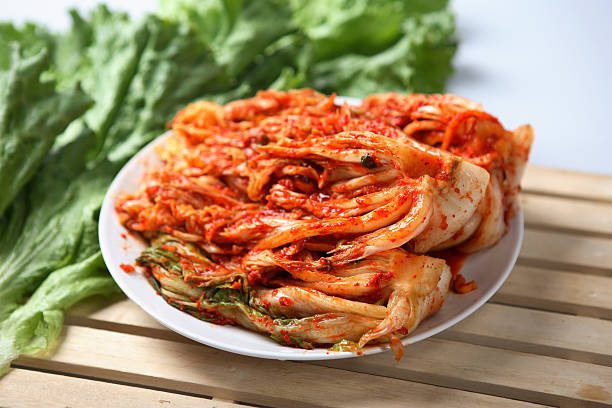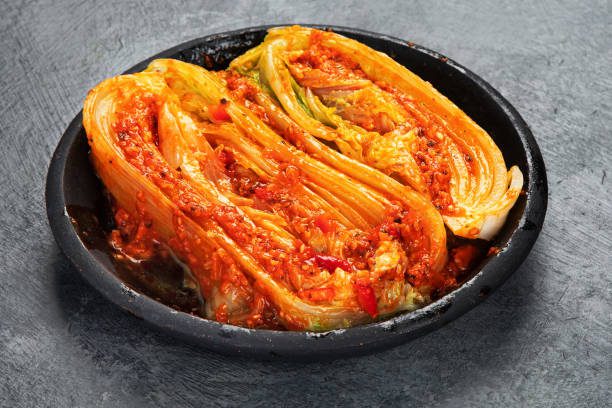This content is for informational and educational purposes only. Always consult a qualified healthcare provider.
Last Updated on February 5, 2024 by Grace Oluchi
Kimchi is a traditional Korean dish. It is made from brewed vegetables, usually cabbage, along with a variety of seasonings such as chili powder.
It is a popular side dish that is known for its spicy, tangy flavor and nutritional benefits. kimchee is the traditional way that South Koreans spell it. While, kimchi is the standard way the Japanese spell it.
📋 Table of Contents
Health benefits of kimchi:
1. Promotes gut health: Kimchi can help promote a healthy gut.
2. Boosts the immune system: kimchi can also boost the immune system by aiding the production of antibodies.
3. Reduces inflammation: Some of the compounds found in the dish, such as ginger and garlic, can help reduce inflammation in the body.
4. May prevent cancer: Some studies have also found that kimchi can help prevent the growth of cancer cells.
5. Lowers cholesterol: Kimchi may help lower cholesterol levels due to its high fiber content.
6. Improves digestion: it can also help improve digestion in addition to reduce bloating and constipation.
7. May improve mental health: Some studies have found that eating probiotics can help improve mood and reduce symptoms of anxiety also depression.


8. Enhances heart health: Kimchi also contains antioxidants that can help protect the heart and reduce the risk of heart disease.
9. Good source of vitamins and minerals: the dish is a good source of vitamins C and K, as well as minerals such as iron, calcium, and potassium.
10. Low in calories: Kimchi is a low-calorie food that can be a healthy addition to a weight loss diet.
11. May help prevent diabetes: Some studies have found that taking probiotics can help improve insulin care and reduce the risk of diabetes.
12. May improve skin health: The antioxidants in kimchi can help protect the skin from damage.
13. May improve brain function: Some studies have found that eating probiotics can help improve mental function and reduce the risk of mental decline.
14. May improve bone health: Kimchi is also a good source of calcium, which is important for bone health.


15. May reduce the risk of allergies: eating probiotics may also help with better gut health.
16. May improve sleep quality: eating probiotics can help improve sleep quality and reduce the risk of sleep disorders.
17. May improve respiratory health: eating probiotics can also help improve respiratory health by bringing down the risk of respiratory infections.
18. May reduce the risk of liver disease: eating probiotics can reduce the risk of liver disease by better liver function.
19. May improve exercise performance: eating probiotics can help improve exercise performance and reduce muscle damage.
20. Delicious and open: the dish is a tasty and open food that can be enjoyed in a variety of food.
What is kimchi?
Kimchi is a traditional Korean dish made from brewed vegetables, usually cabbage, radishes, or cucumbers, that is filled with a variety of seasonings such as chili powder, garlic, and ginger.
What are the health benefits of kimchi?
Kimchi is rich in probiotics, which are good bacteria that support digestive health. It is also low in calories and fat and high in vitamins and minerals such as vitamin C and potassium.
How is kimchi made?
Yu can make kimchi by brewing vegetables in a mixture of salt, water, and seasonings for several days or weeks. The brewing process creates a sour, tangy flavor and increases the probiotic content of the dish.
Is kimchi spicy?
Kimchi can be spicy depending on the type of chili powder used and personal preference. Some varieties of kimchi are mild, while others are very spicy.
How can I add kimchi into my diet?
Kimchi can be a side dish, or as a flavorful ingredient in a variety of dishes such as soups, stews, and stir-fries. It can also be in sandwiches or tacos for a spicy kick.

